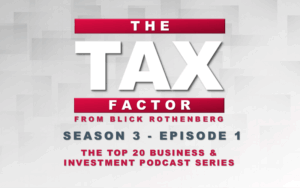
The London Restaurant Industry in 2025
Amidst economic pressures, the capital’s restaurants are embracing new opportunities
23 May 2025 | Authors: Darsh Shah, Rob Harness
Rob Harness and Darsh Shah take a look at what’s on the menu in 2025
London’s restaurant industry has taken something of a battering in recent years – pandemic aftershocks, inflation, staffing shortages, and rising operational costs. But despite this, the capital’s culinary scene remains one of the most dynamic and investable in the world. Why? Because Londoners – and the millions of tourists who visit each year – still crave the experience of dining out.
The reasons are deeply human: connection, celebration, and culture. Whether for a pre-theatre dinner in Covent Garden or a Sunday roast in Hackney, restaurants remain central to how London lives.
Darsh Shah, Audit Partner says
London’s restaurant scene is like the city itself: diverse, exciting and constantly changing.
Restaurants aren’t just about food: they’re a focal point of culture, connection, and community. In a post-lockdown era, where hybrid working has become the norm, people are spending more time isolated at home, communicating virtually and having fewer conversations in person.
But basic human interaction is fundamental to happiness, and that is why people will always want and need to eat and drink out.
Investors are still hungry
Investor appetite hasn’t waned either. Over the past five years, private equity has continued to flow into the sector, targeting scalable concepts with strong branding and operational discipline. A slight decline in private equity deals over the last couple of years looks set to rebound. And while some high-profile closures have made headlines, they’ve often been caused by overexpansion or outdated models, rather than a lack of demand.
Crowdfunding, meanwhile, is emerging as a powerful tool for smaller operators. Honest Burger raised £2.9 million via Crowdcube in October 2023, following on from the success of MJMK Restaurants (£2.5m, May 2023) and smaller restaurants such as Michelin-recommended Bancone (£882k, December 2022) and ‘mostly vegan’ concept Tendril (254k, August 2022).
While not yet mainstream, it’s gaining traction as a way to build customer buy-in and raise capital without relinquishing control. For many independents, it could be an untapped opportunity worth exploring further.
What investors want in 2025
Today’s investors are more selective. They’re looking for:
Operational efficiency: Lean teams, smart systems, and tight cost control.
Tech-enabled models: From AI-driven inventory systems to app-based loyalty schemes.
Unique customer experiences: Unusual cuisines, local sourcing and ultra-seasonal menus, or immersive “chef’s table” environments.
Robust supply chains: Local sourcing and diversified suppliers.
Scalability: Small brands with strong potential are particularly appetising, particularly those with the potential to expand internationally.
Sustainability and wellness: Menus that support healthy lifestyles and environmentally conscious values.
London’s restaurant industry has taken something of a battering in recent years – pandemic aftershocks, inflation, staffing shortages, and rising operational costs.
Rob Harness, Corporate Tax Partner says:
The best concepts today are those that blend profit with a clear sense of purpose, If a restaurant understands and engages with its audience, stays true to a strong and distinctive concept, and can scale whilst staying lean, it stands every chance of success.
Thriving under pressure
The restaurant industry is – as it always has been – subject to significant cost pressures.
The recent increase in the Minimum Wage and Employer NICs, together with persistent inflation, are squeezing margins further. Add to that the tightening of discretionary consumer spending and high interest rates, and it’s clear that survival requires more than just good food.
The challenges are significant, but so is the opportunity – and with typical creativity and resilience, London’s restauranteurs are showing that they can stand the heat. Many operators are responding by streamlining menus, renegotiating supplier contracts, and investing in tech to automate back-of-house operations. Others are leaning into loyalty schemes and experiential marketing to keep customers coming back.
It’s clear that, to thrive, London’s restaurant scene will have to adapt. But for those with vision, agility, and a winning concept, the city remains one of the most exciting places in the world to build a restaurant brand.

Retail & Hospitality Hub
We have considerable experience of working with businesses in the retail and hospitality sectors, at all points in the business lifecycle
Our retail and hospitality clients include businesses of all sizes, from family-run and independent groups to franchises and private equity-backed organisations
Contact Us
You may also be interested in

The EU’s Startup and Scaleup Strategy will create opportunities for UK businesses

FRS 102 is changing – Why Mid-Market companies must pay attention now













